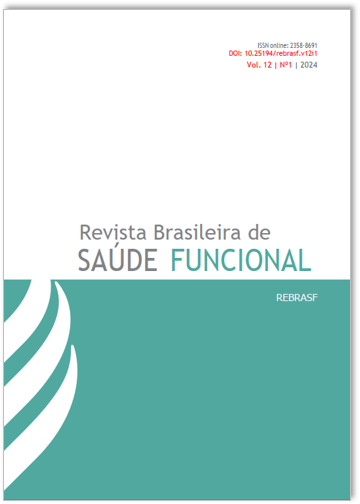PSYCHOSOCIAL ASPECTS AND ANXIETY SYMPTOMS RELATED TO GRADUATION AMONG NURSING STUDENTS
DOI:
https://doi.org/10.25194/rebrasf.v12i1.1716Abstract
Entry into Higher Education is marked by a transition phase for the subject and requires adaptations to new experiences, being one of the most stressful environments and potentiating the signs and symptoms associated with anxiety and there are situations inherent to nursing training that can negatively impact the mental health. The study sought to analyze the psychosocial aspects, graduation experiences and signs and symptoms of anxiety among nursing students at a university. This is a cross-sectional, descriptive study with a quantitative approach. An online form containing guiding questions on the subject was applied. Data were arranged and analyzed using the Physical Self-Perception Profile (PSPP) program. It was evident that the majority of students were female, between 21 and 24 years old, mixed race/color, without children and single. They showed good performance in the course and good relationship with professors/colleagues and 62.8% of the participants have/already had the desire to change courses. Tests, presentation of seminars, sabbaths, relationship with colleagues and/or professors, transportation, housing and/or food on campus, being part of a research/extension center were situations that generated the most anxiety. Impaired sleep, sweating, restlessness, tachycardia, lack of concentration, headache/muscle pain and involuntary fine tremors were the most prevalent signs and symptoms of anxiety. It is evident the importance of studying and knowing the mental health condition of nursing students, identifying the factors that most generate anxiety in the training process. Thus, the present study makes important contributions to Public Health and Collective Health.


